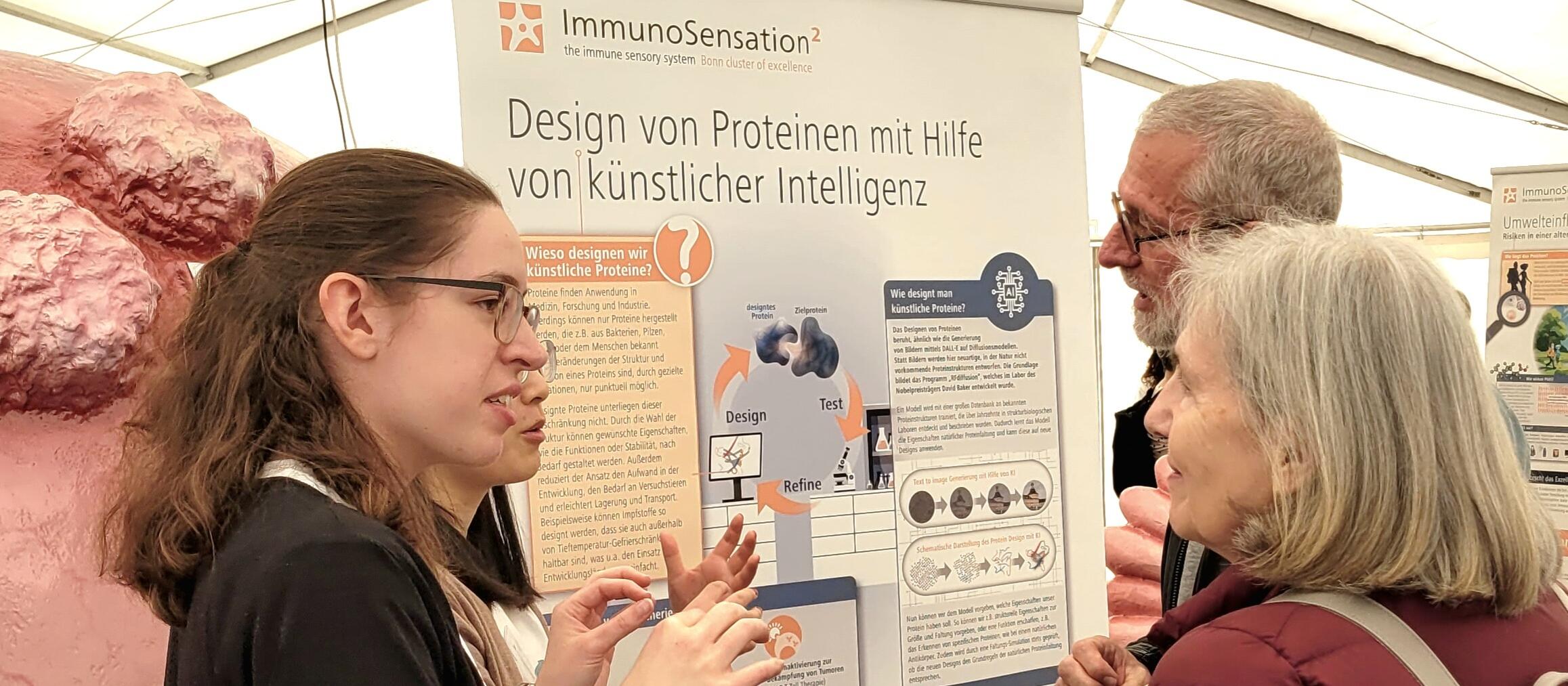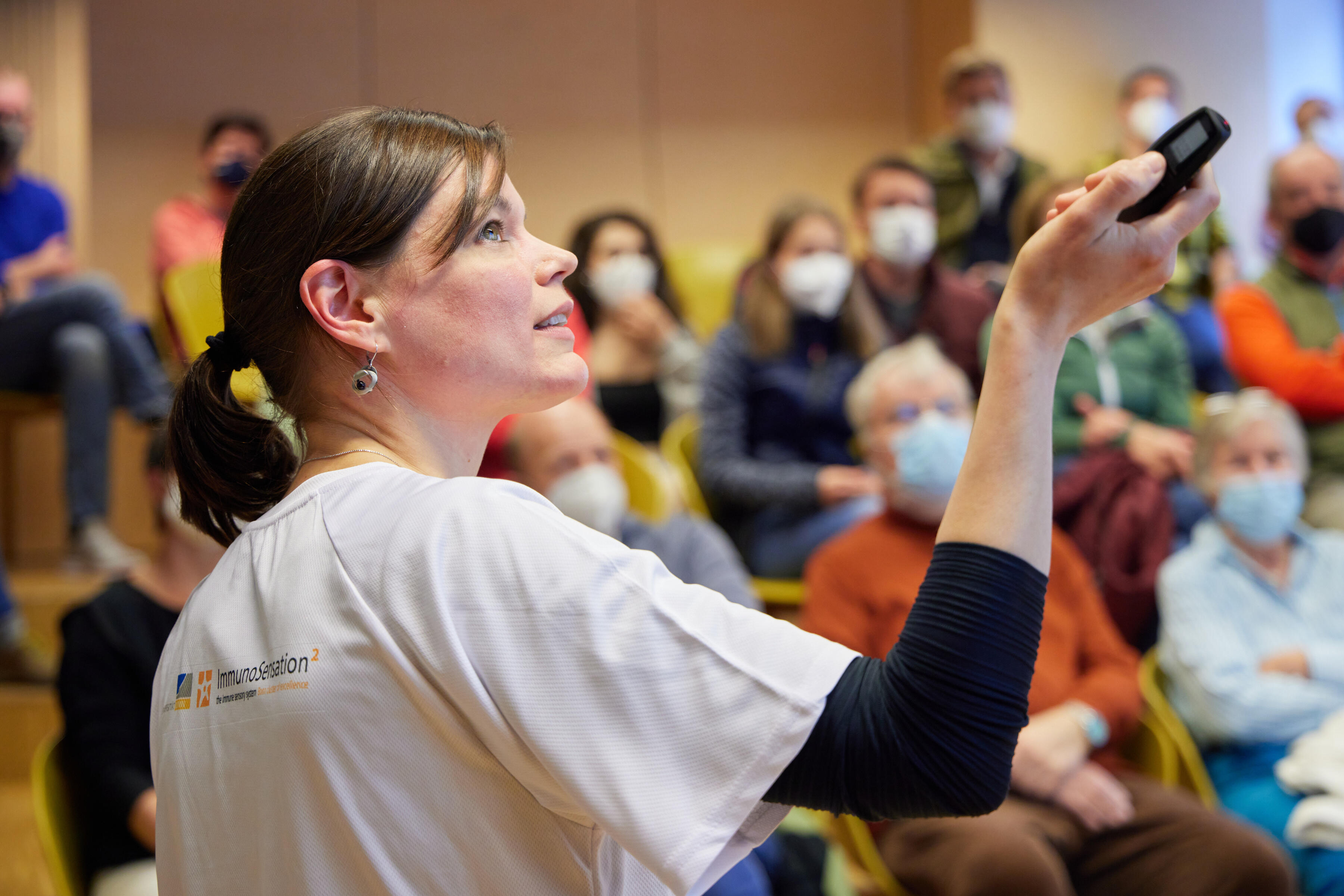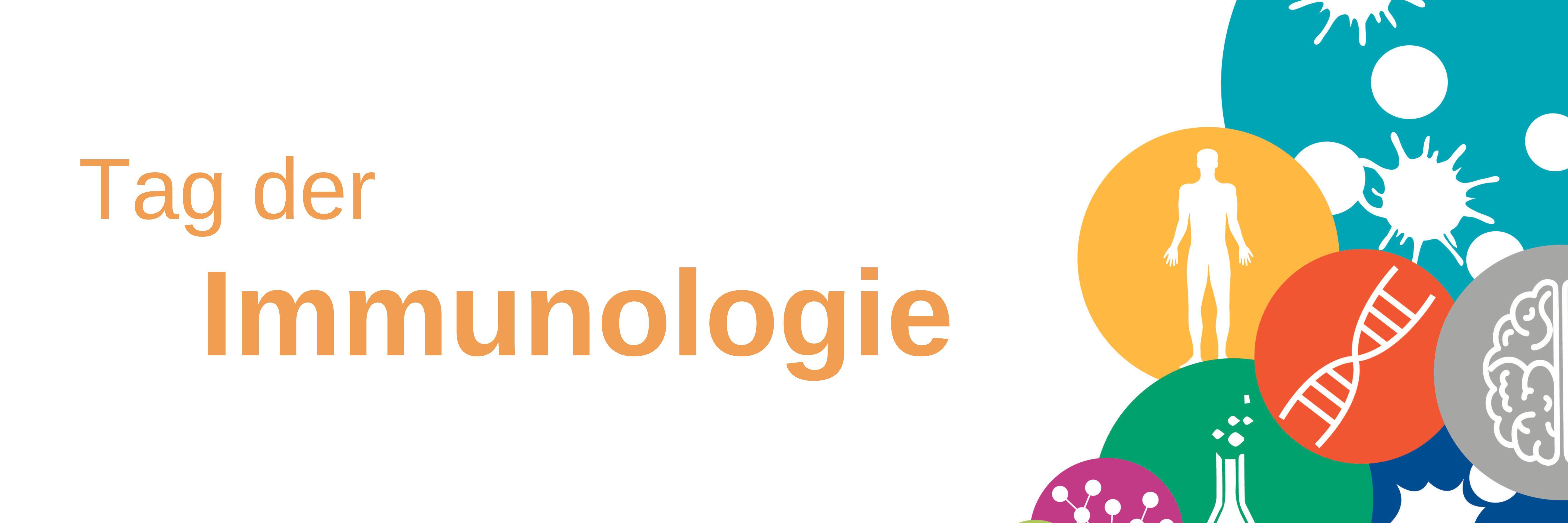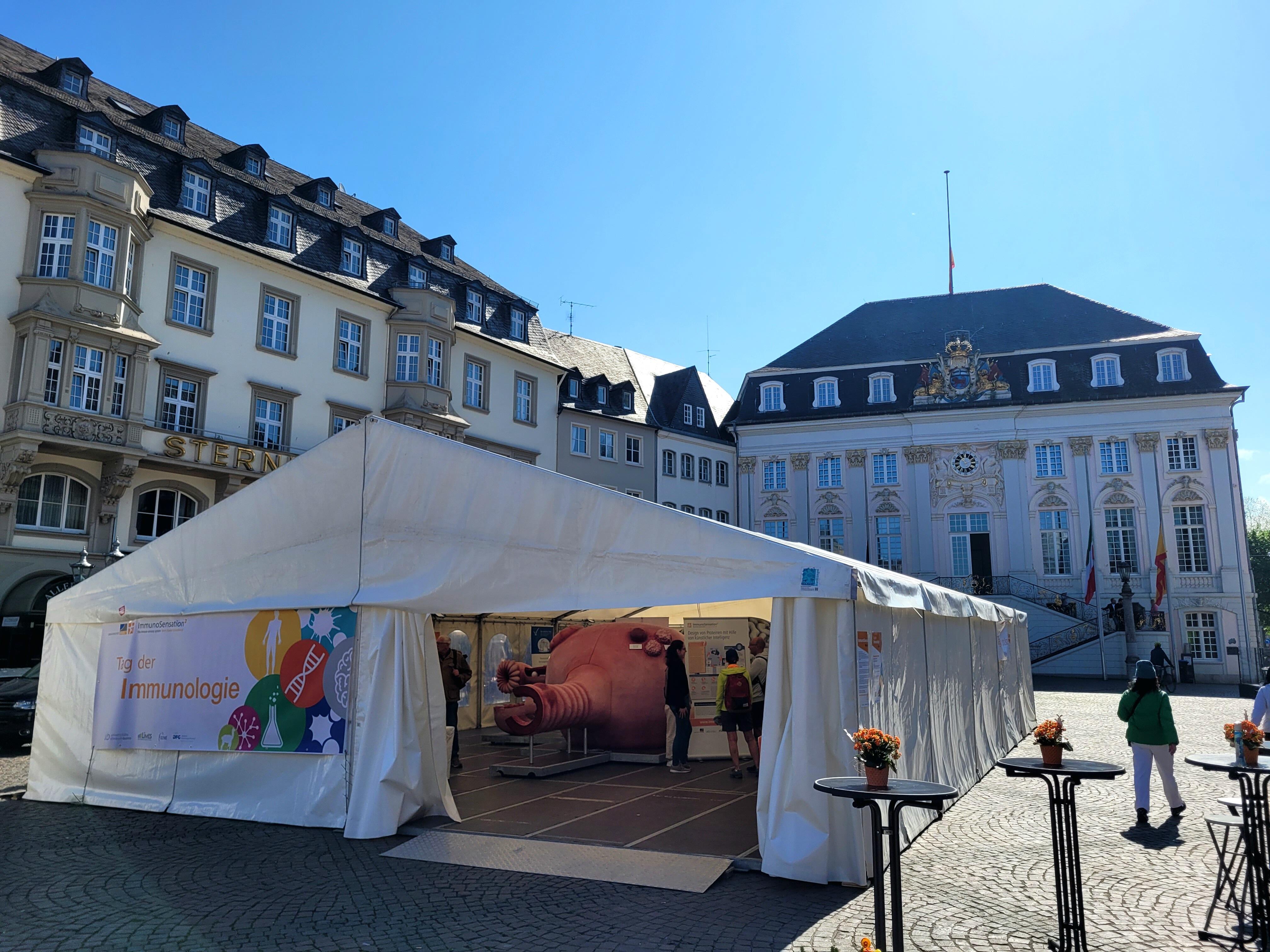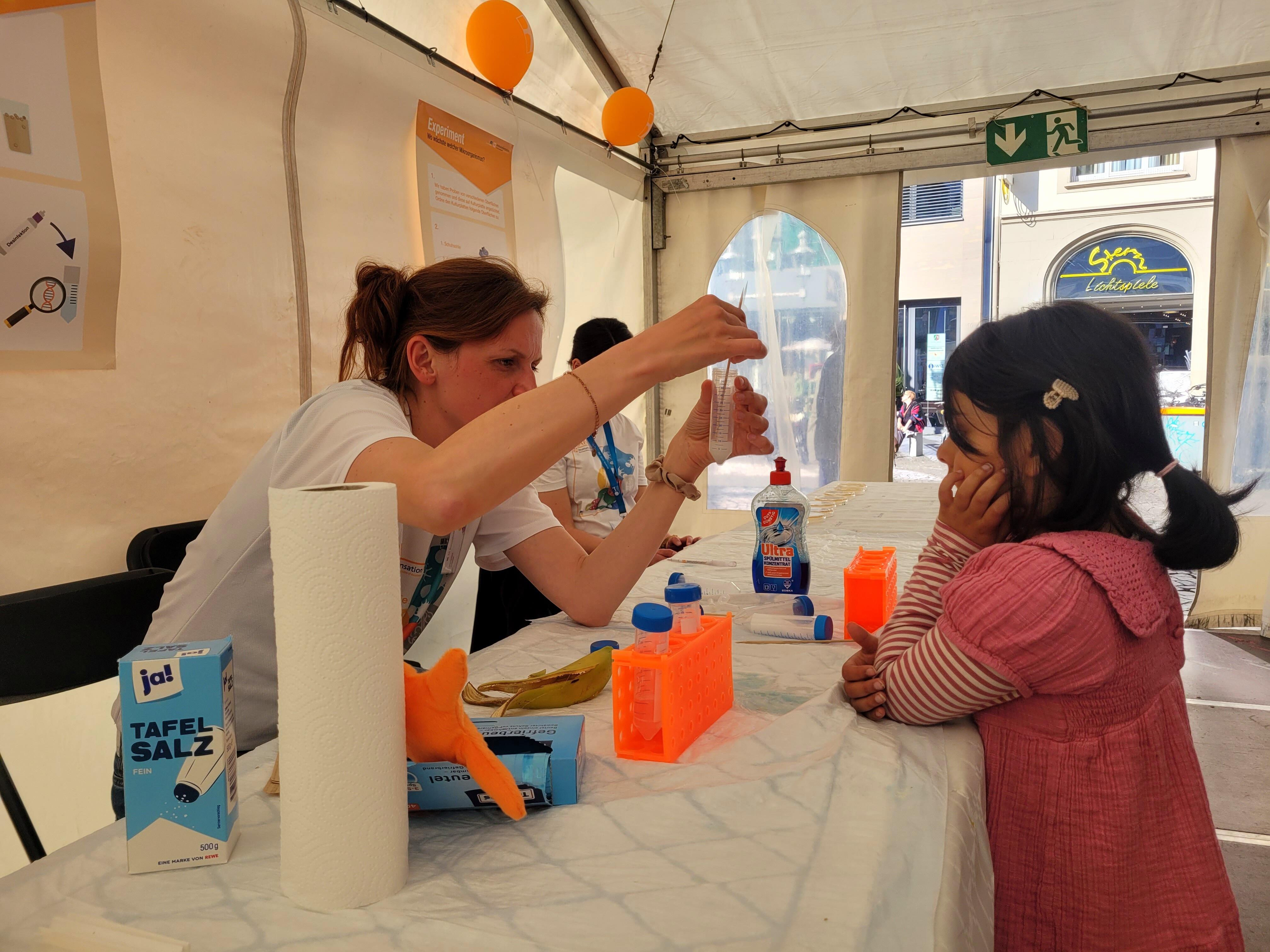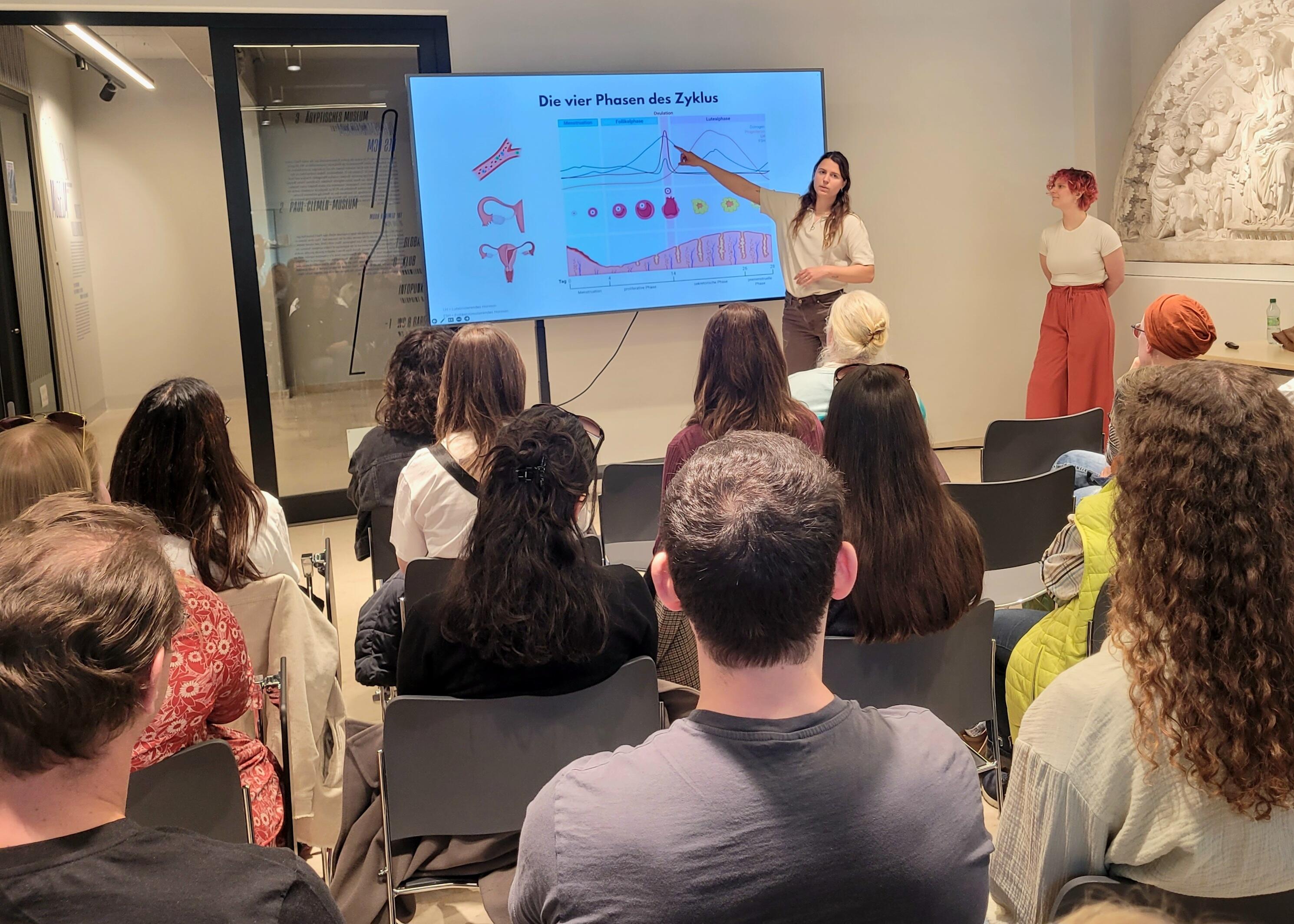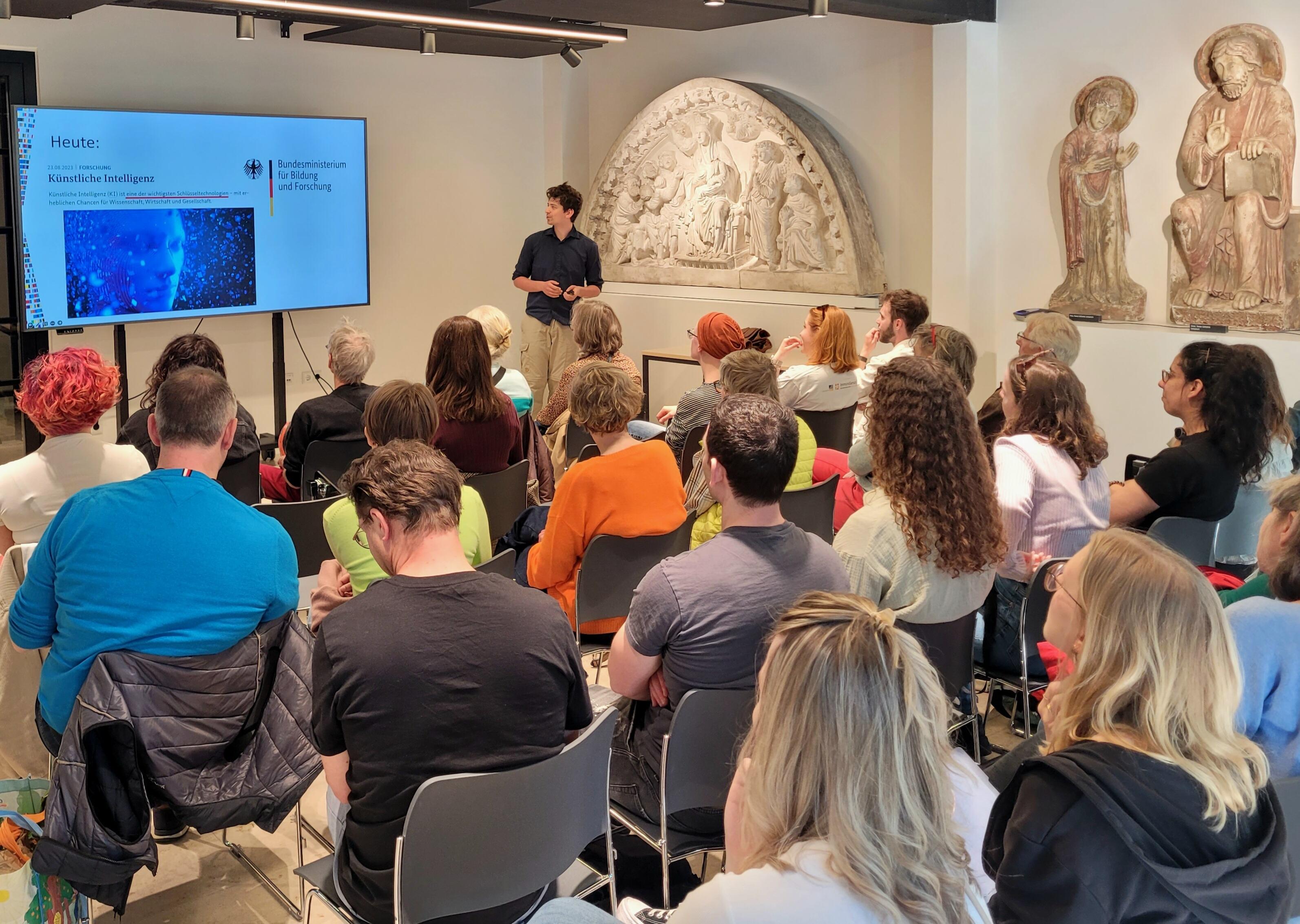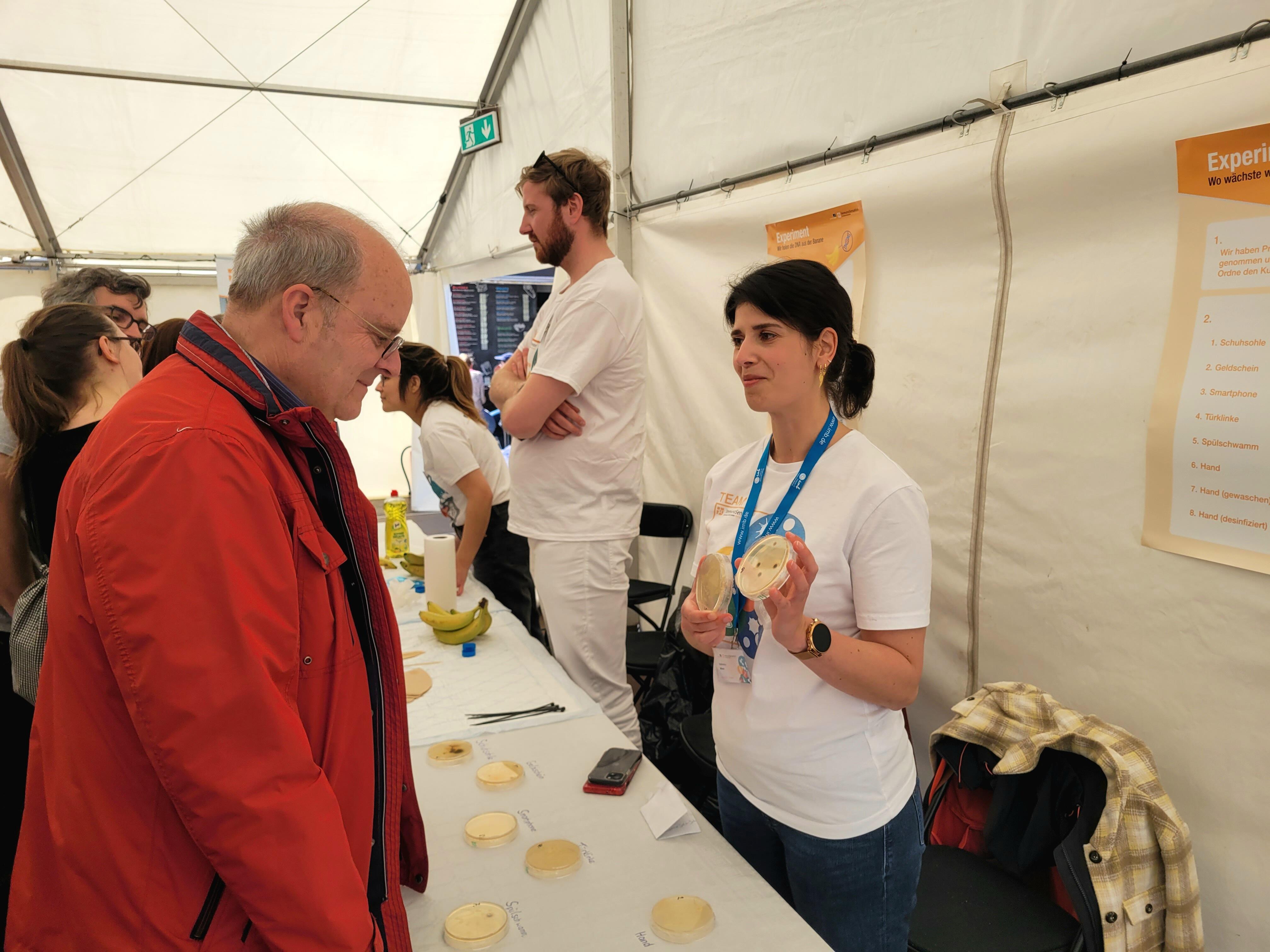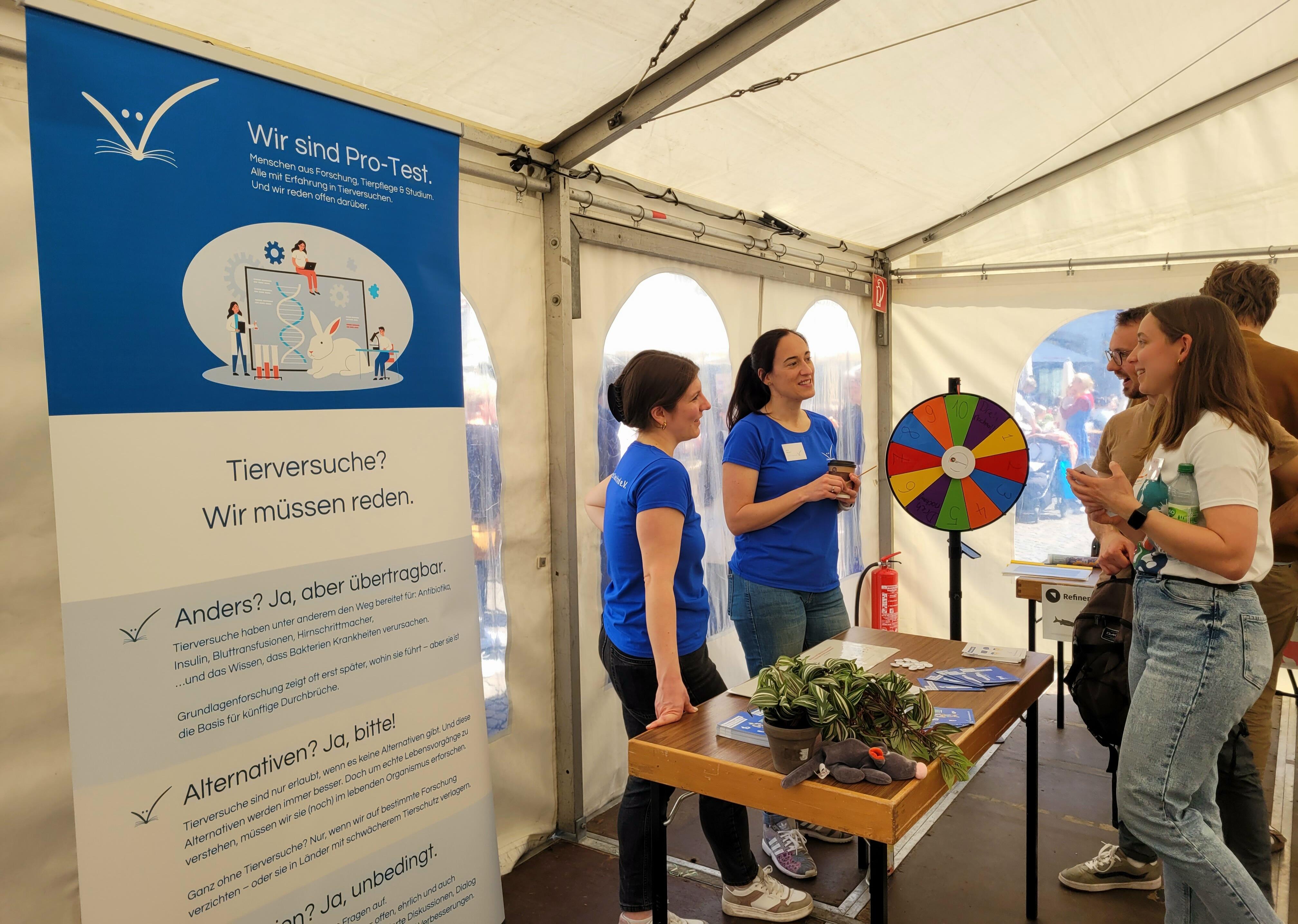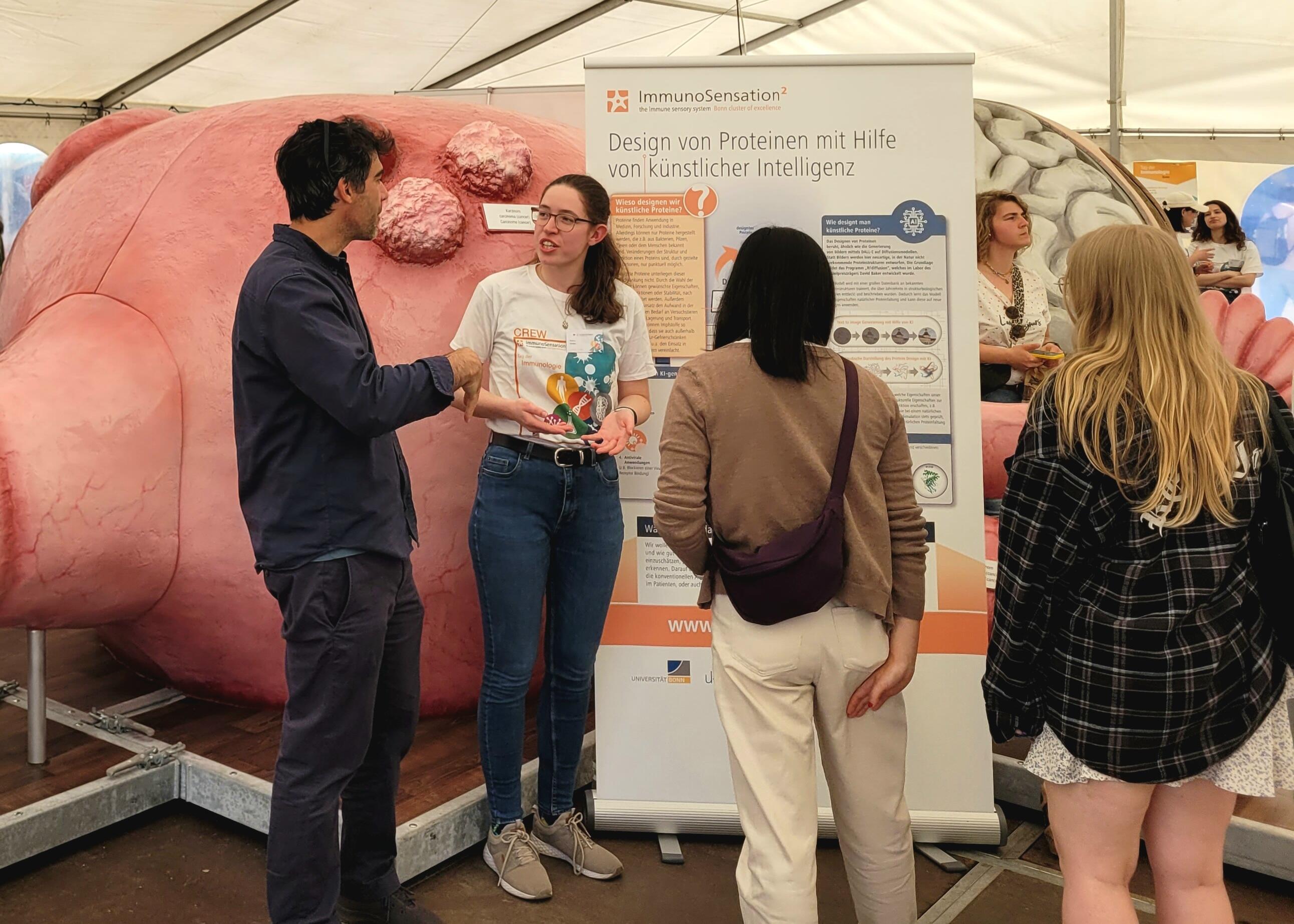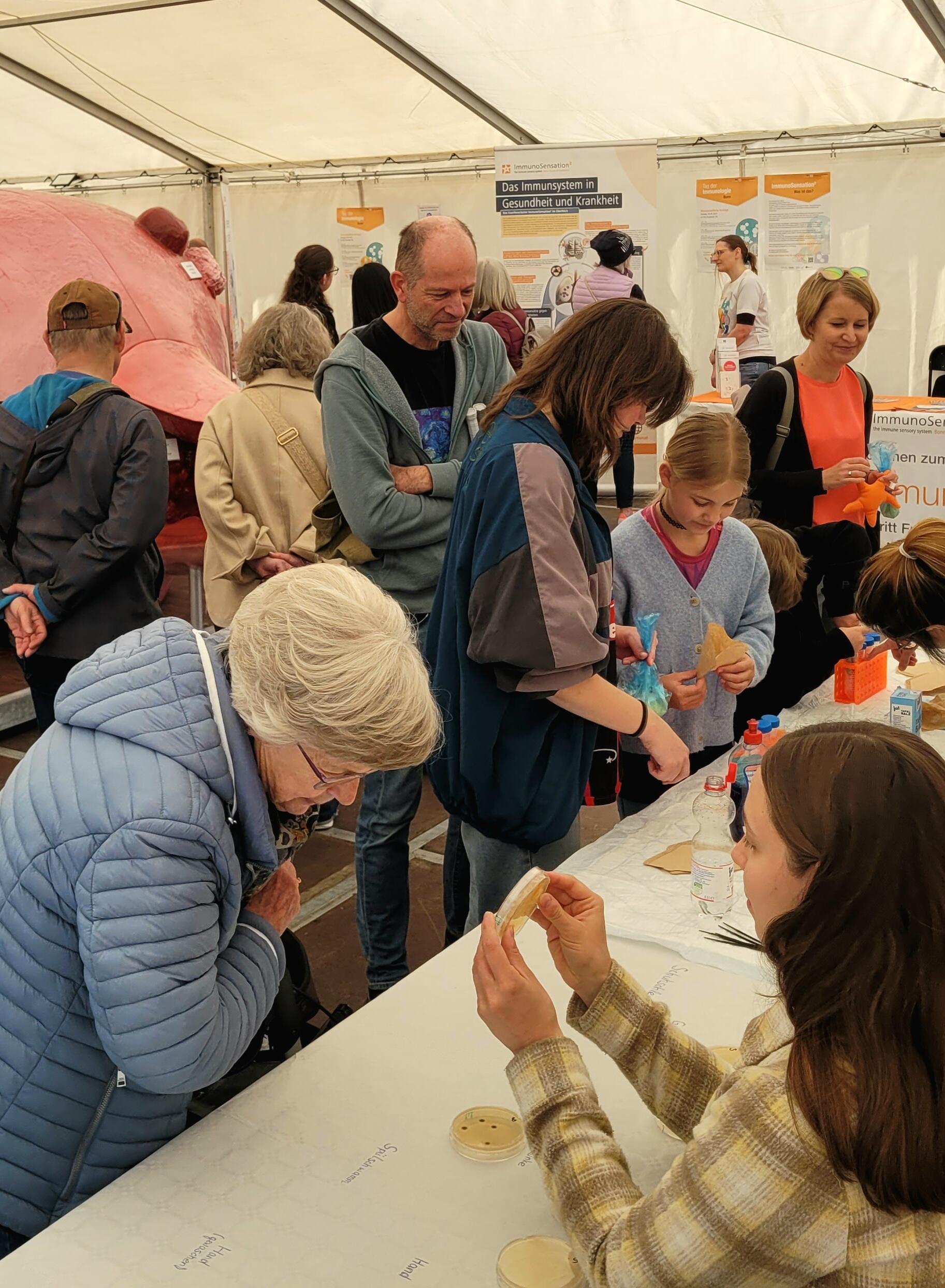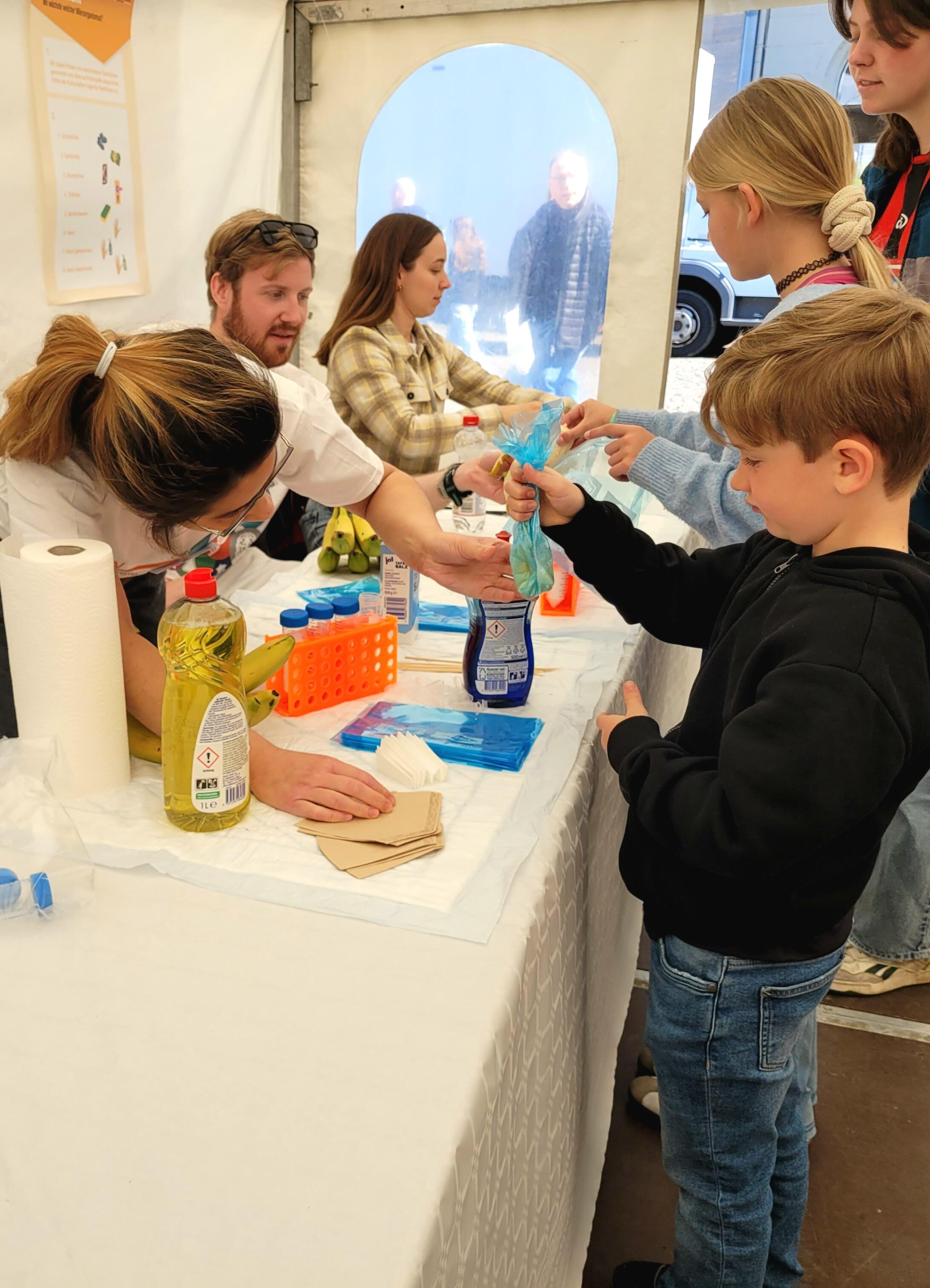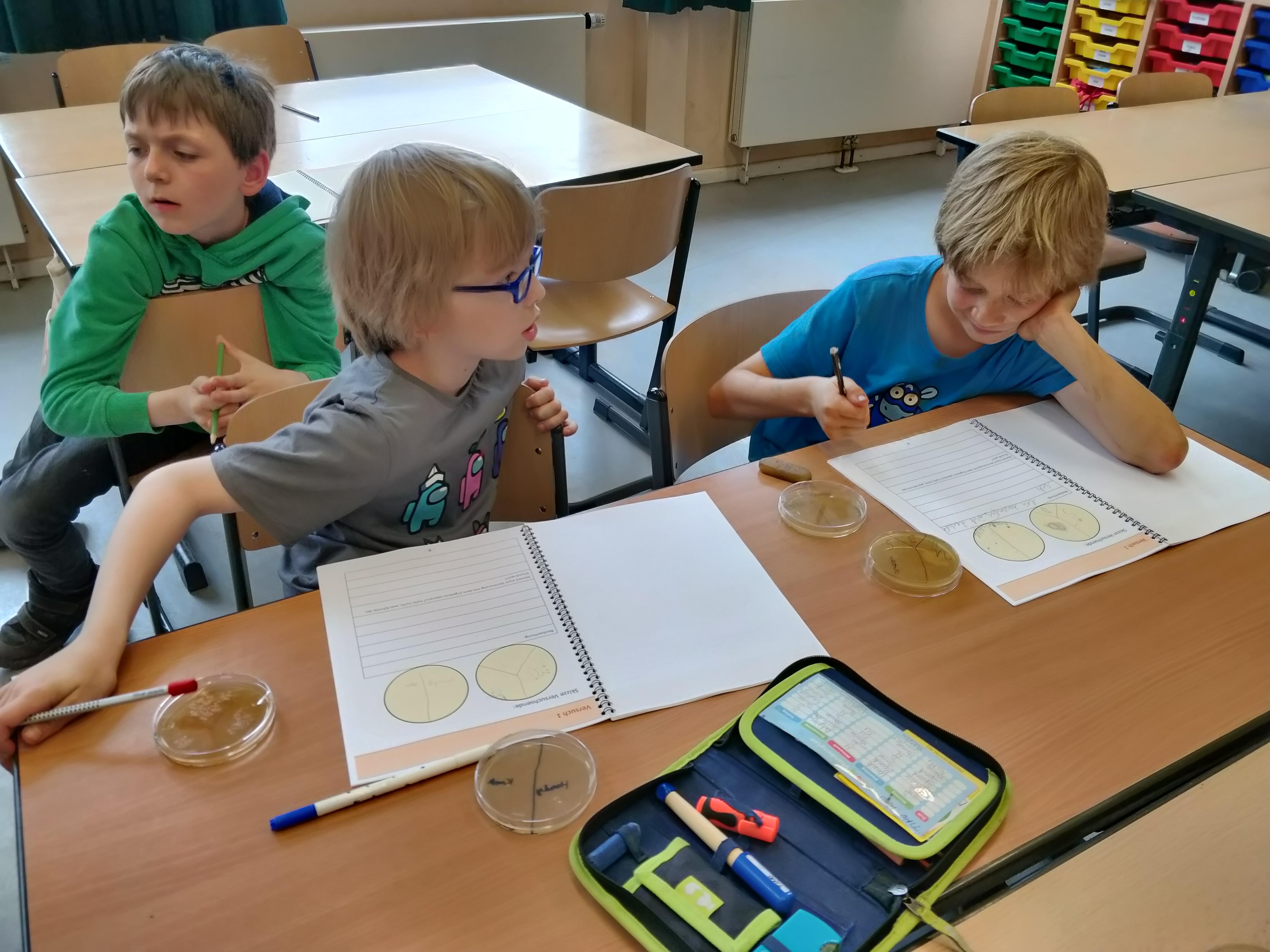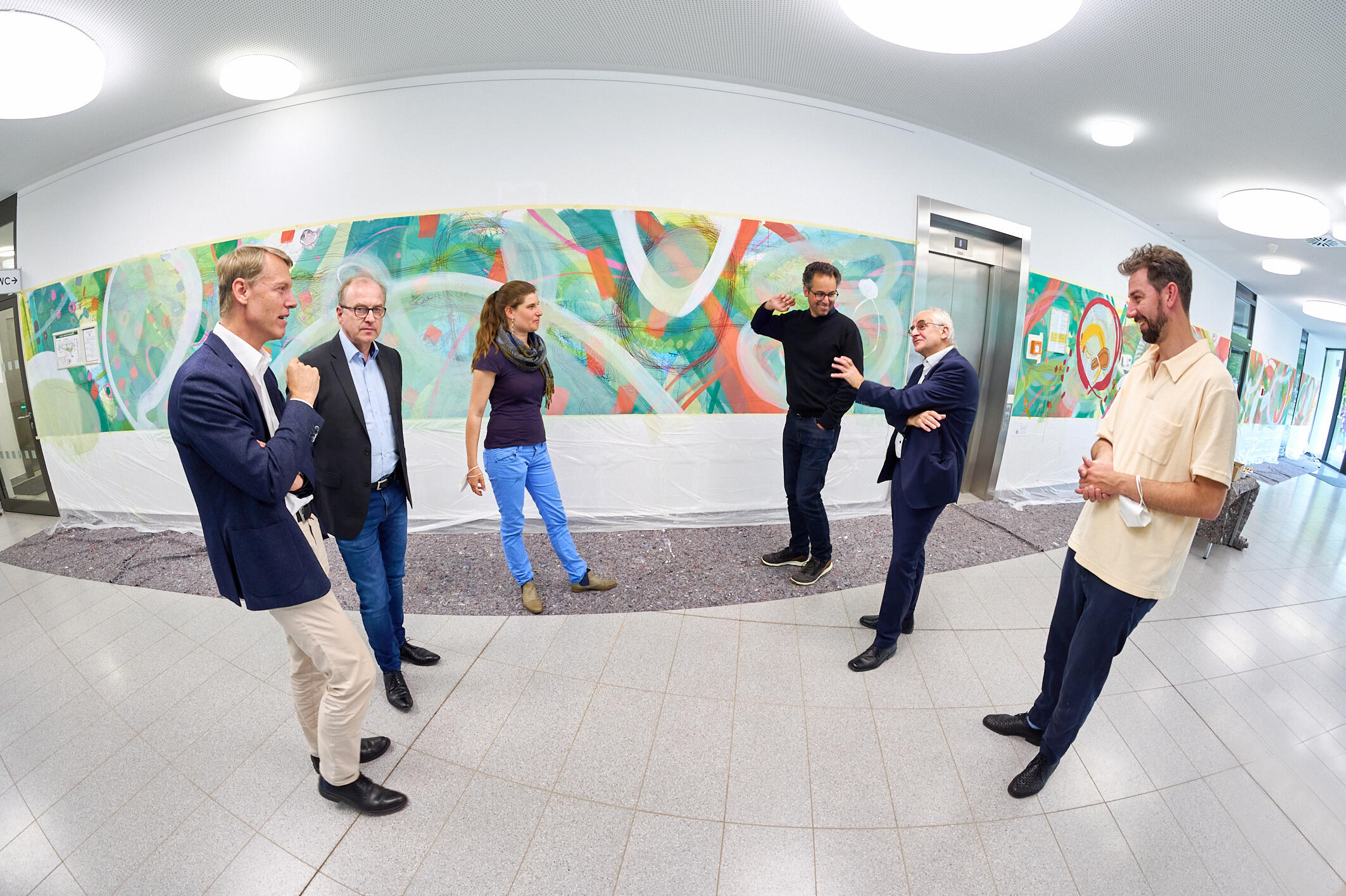Immunological research lies the foundation of public health and is thus of great interest to society. Working at the very frontier of development and innovation, scientists are irrefutably obliged to pass knowledge on to others. As scientists, we can guide society and teach unbiased, evidence-based decision making. And in a world permeated by science and its products, these skills become ever more important.
In order to inform the interested public about current developments in the biomedical sciences, especially immunology, we organize public events on a regular basis. Every spring, we celebrate the annual Day of Immunology and bring scientists to the Bonn city center, presenting immunological topics and explaining biomedical research on a basic level.
Our engagement is backed by public scientific talks, which are provided on site and streamed online. Also, we actively inform about current scientific news from ImmunoSensation2 on our social media channels on Instagram, Facebook, LinkedIn and bluesky.
Furthermore, ImmunoSensation2 has signed a cooperation contract with Museum Alexander König and and is preparing an exhibition under the theme of "one health" in a leading role.
Day of Immunology
2025 - The diversity of the immune system
April 29th is the european "Day of Immunology". Every spring we celebrate this on a Saturday in the Bonn city center. The last event took place on Saturday, April 26th, 2025.
The human immune system is diverse on both genotypic and phenotypic level. This diversity is crucial for a robust and adaptable immune response. But our immune systems also differ fundamentally depending on our sex, age or the environmental influences to which we are exposed.
Can people age healthily? How does the menstrual cycle affect the immune system? How does AI help to create new proteins? And how can we support the immune system in fighting tumors? These were the key topics adressed in the latest event, celebrating the "Day of Immunology".
Annualy, scientists from the Cluster of Excellence ImmunoSensation2 present and discuss their research in the Bonn city center. Selected research topics are presented in a science tent, where visitors may also walk through supersize organ models or carry out little experiments, guided by scientists. For a deeper insight into specific reserch projects, ImmunoSensation2 scientists hold public talks at the P26, Bonn Universities open house of knowledge.
Science education
ImmunoSensation2 is engaged in several projects and cooperations, supporting scientific education at an early age.
We support the annual Jungend Forscht regional competition Bonn/Cologne, with a special award in Biomedicine and invite the winners to visit one of our labs for a day. The most recent invitees from a regional school visited the Institute for Experimental Oncology at the University Hospital Bonn and learned how cells are grown in culture and tissues can be analyzed using various staining techniques and microscopes.
We participate in local science rallyes where we teach students the basics of immunology and guide kids to playfully engage with scientific topics, using games and quizzes. In 2025, our focus was on the composition of the tumor microenvironment and the function of the immunecells involved.
We actively participate in the Europe-wide "open-schooling" project MULTIPLIERS. The goal of MULTIPLIERS is to help students understand the relevance of science to everyday life and to strengthen their ability to make fact-based decisions.
Science is one of the pillars of modern society and as such is closely intertwined with societal and environmental challenges. Ubiquitous examples of this are climate change and the advancing loss of biodiversity. In schools, however, science is often presented to students in an abstract way and without practical relevance. To make science more tangible and attractive, the MULTIPLIERS Horizon 2020 project is establishing Open Science Communities (OSCs). Representatives from schools, universities, informal education providers, museums, local associations, industry, civil society, policy makers and the media are joining forces in OSCs to jointly expand opportunities for science learning. This is being implemented in parallel in six European countries.
Scientists of the Cluster of Excellence ImmunoSensation2 are part of the OSC Bonn. Together with our partners, we develop concepts for teaching scientific content at schools in Bonn.
In 2022 and 2023, we focus on the topic of vaccinations in the MULTIPLIERS project. We focus especially on the Human Papilloma Virus (HPV), which has a high relevance for teenagers. Students will be guided to learn about different perspectives, including the two often conflicting goals of public health protection and individual autonomy. To this end, scientists visit the classroom and students are invited into the labs of the Excellence Cluster. Together they collect, evaluate and discuss data. Overall, students are guided to develop a fact-based and multi-layered picture of the benefits and effects of vaccination.

art@immunosensation
The art project art@immunosensation adds a new level of reflection to the exchange between scientists and the public. Together with scientists from the Cluster of Excellence, artists from the Alanus University of Arts and Social Sciences Alfter, under the direction of Prof. Willem-Jan Beeren (architecture) and Prof. Paul Petry (sculpture), are creating a so-called WALL-laboratory (WANDlabor) in the foyer of the Biomedical Center II (BMZII) at the University Hospital Bonn.
It is a joint creative process that arises, from the interaction among the scientists and artists. The result of the productive exchange is a constantly changing work of art that reflects the content of the research carried out in the laboratory into the foyer of the building. The wall that separates the public area of the building from the laboratory wing thus becomes a membrane between science and society, the medium being art. In the future, too, the artwork will direct the gaze of passers-by into the building and initiate an interaction between science and the public.
Spot on Science - the ImmunoSensation Publicast
Lead authors introduce their current publications on immunological topics - that is "Spot on Science - The ImmunoSensation Publicast".
Within three minutes, junior researchers of ImmunoSensation2 give a short introduction to their latest work.
Reading abstracts was yesterday - There is no easier way to get an adept impression of current, first-class research from Bonn. In addition, you get to know promising young scientists directly. Find out which figure of the respective publication is most central to them and how the junior researchers see their finding in the overall scientific context.
Interested in current immunological research? Watch Spot on Science now.
